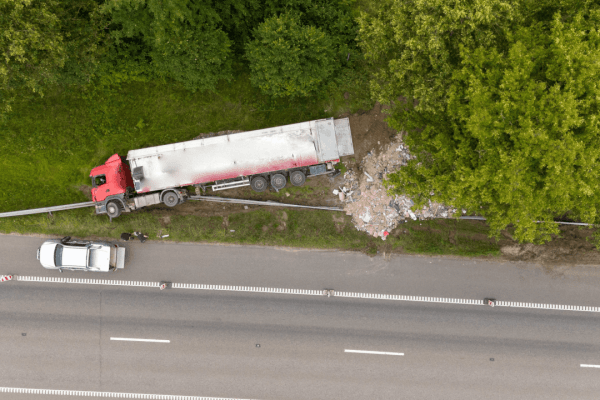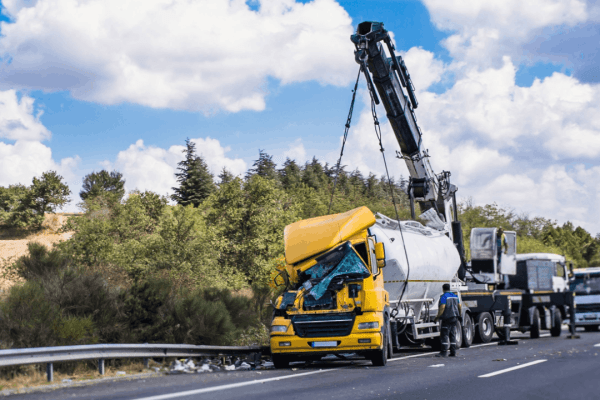
Truck Accident Law: Know Your Rights After a Crash
Truck Accident Law and How It Protects You
Truck accident law governs how victims of commercial vehicle crashes can seek compensation for injuries, damages, and losses. These laws include both state and federal regulations designed to hold drivers, trucking companies, and other parties accountable for negligence on the road. Understanding your rights under truck accident law is critical if you’ve been hurt in a collision involving a semi-truck, delivery van, or any business-operated vehicle.
What Is Truck Accident Law?
Truck accident law refers to the legal framework that applies to crashes involving large commercial vehicles. Unlike standard car accidents, these cases are more complex due to strict trucking regulations and the involvement of commercial entities.
Key Features of Truck Accident Law:
- Federal Motor Carrier Safety Administration (FMCSA) regulations
- Commercial liability insurance requirements
- Employer liability rules
- Strict maintenance and inspection standards
- Driver qualification and training requirements
These rules are designed to prevent accidents caused by fatigue, mechanical failure, or lack of oversight.
Who Can Be Held Liable Under Truck Accident Law?
Truck accident liability often extends beyond the driver. Under truck accident law, multiple parties can be held responsible depending on the cause of the crash.
Potentially Liable Parties:
- Truck driver – for distracted, impaired, or reckless driving
- Trucking company – for negligent hiring, poor training, or violating safety rules
- Cargo loaders – for improperly secured or overloaded freight
- Maintenance providers – for skipped inspections or faulty repairs
- Truck manufacturers – for defective vehicle components
For a deeper breakdown of liability and legal responsibility, explore this guide on trucking accident negligence.
What Damages Can Victims Claim Under Truck Accident Law?
A successful claim under truck accident law allows you to recover damages for both financial and emotional losses.
You may be eligible for compensation including:
- Medical expenses (ER visits, surgeries, rehab, prescriptions)
- Lost wages from time missed at work
- Reduced earning capacity for long-term disability or job loss
- Property damage to your car or belongings
- Pain and suffering from physical and emotional trauma
- Loss of consortium or support in wrongful death cases
Claims may be settled with the insurance company or taken to court, depending on the case.
To understand what compensation may apply to your case, visit this guide to truck accident damages.
How Truck Accident Law Differs from Car Accident Law
While both types of crashes involve negligence, truck accident law is much more complex due to the involvement of commercial regulations and multiple defendants.
Here’s how it differs:
- Higher insurance coverage: Commercial policies often exceed $1 million
- Federal oversight: FMCSA enforces safety rules, hours of service, and vehicle standards
- More evidence required: Includes black box (ELD) data, driver logs, cargo manifests, and maintenance records
- Larger crash impact: Commercial trucks cause more damage due to their size and weight
Because of these differences, hiring a legal team with experience in truck accident law is critical to maximizing your recovery.
Get Help Navigating Truck Accident Law Today
If you’ve been injured in a commercial truck accident, don’t wait to understand your rights. Truck accident law gives you the tools to pursue full compensation, but it takes an experienced legal team to use them effectively. A lawyer can investigate the crash, identify all liable parties, and negotiate aggressively with commercial insurers.
Start your free claim review today to get personalized guidance on your legal options.
Frequently Asked Questions (FAQs)
1. What is the time limit to file a truck accident lawsuit?
Each state has its own statute of limitations. Most give you 1–3 years to file a claim, but acting early helps preserve critical evidence.
2. Can I sue the trucking company even if the driver caused the crash?
Yes. Under vicarious liability laws, the trucking company is often responsible for its driver’s actions while on the job.
3. How is fault proven in truck accident cases?
Attorneys use evidence like dashcams, ELD logs, maintenance records, and witness statements to build a case under truck accident law.
4. What should I do at the scene of a truck accident?
Call 911, get medical help, document the scene with photos, gather witness info, and avoid giving recorded statements to insurers.
5. How much does it cost to hire a truck accident lawyer?
Most work on a contingency fee, meaning you don’t pay unless they win or settle your case.
Key Takeaways
- Truck accident law governs how victims recover damages from commercial vehicle crashes.
- It involves federal regulations, multiple liable parties, and complex evidence.
- Victims may recover compensation for medical bills, lost income, and pain and suffering.
- Liability can include drivers, companies, loaders, and manufacturers.
- Legal help is essential for navigating claims and maximizing compensation.



